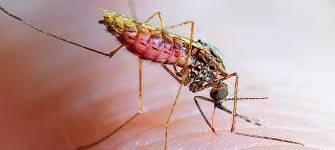Understanding Malaria: Causes, Symptoms, Treatment, and Prevention
Introduction
Malaria is a widespread and deadly disease that has plagued humanity for centuries. Despite significant progress in combating the disease, it remains a major public health challenge, particularly in tropical and subtropical regions. In this comprehensive guide, we will delve into the intricacies of malaria, exploring its causes, symptoms, treatment options, and prevention strategies.
1. What is Malaria?
Malaria is a parasitic disease caused by Plasmodium parasites transmitted through the bites of infected female Anopheles mosquitoes. There are several species of Plasmodium that can infect humans, with Plasmodium falciparum, Plasmodium vivax, Plasmodium ovale, Plasmodium malariae, and Plasmodium knowlesi being the most common.
2. Transmission
The transmission of malaria occurs through the bite of an infected mosquito. When a mosquito bites a person with malaria, it ingests the parasites along with the blood. The parasites then multiply within the mosquito's body, eventually reaching the salivary glands. Subsequent bites by the infected mosquito can then transmit the parasites to other individuals.
3. Symptoms
The symptoms of malaria typically manifest within 10 to 15 days after the infective mosquito bite. However, in some cases, it may take several weeks or even months for symptoms to appear. The common symptoms of malaria include:
- Fever
- Chills
- Sweating
- Headaches
- Nausea and vomiting
- Muscle aches and fatigue
In severe cases, malaria can lead to complications such as cerebral malaria, which can cause seizures, coma, and even death if not treated promptly.
4. Diagnosis
Diagnosing malaria involves a combination of clinical evaluation and laboratory tests. The most common method for diagnosing malaria is through microscopic examination of blood smears to detect the presence of the parasite. Rapid diagnostic tests (RDTs) are also available, which can provide quick and accurate results in resource-limited settings.
5. Treatment
The treatment of malaria depends on several factors, including the species of Plasmodium involved, the severity of the infection, and the patient's age and overall health. The primary goal of malaria treatment is to eliminate the parasite from the patient's bloodstream and prevent complications.
Artemisinin-based combination therapies (ACTs) are currently the most effective treatment for uncomplicated falciparum malaria, which is the most deadly form of the disease. Other antimalarial medications, such as chloroquine, primaquine, and mefloquine, may be used depending on the species of Plasmodium and the presence of drug resistance.
6. Prevention
Preventing malaria involves a multi-faceted approach that includes vector control measures, such as insecticide-treated bed nets and indoor residual spraying, as well as chemoprophylaxis for travelers to endemic areas. Vaccines also play a crucial role in malaria prevention, with the RTS,S/AS01 (Mosquirix) vaccine being the first and only malaria vaccine approved for use.
7. Challenges and Future Directions
Despite significant progress in the fight against malaria, several challenges remain. These include the emergence of drug-resistant parasites, insecticide-resistant mosquitoes, and limited access to healthcare in endemic regions. Addressing these challenges will require sustained investment in research, development, and implementation of new tools and strategies for malaria control and elimination.
Conclusion
Malaria continues to be a significant global health problem, affecting millions of people each year. However, with continued efforts and investment in research and development, it is possible to achieve the goal of malaria elimination and ultimately eradicate this deadly disease. By raising awareness, improving access to healthcare, and implementing effective prevention and control measures, we can work towards a malaria-free world for future generations.




No comments yet
Be the first to share your thoughts!